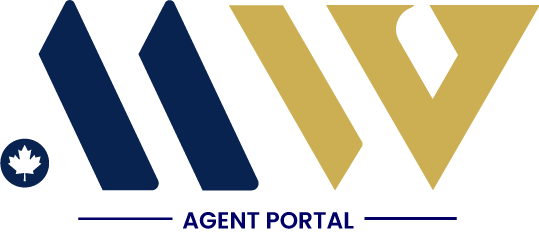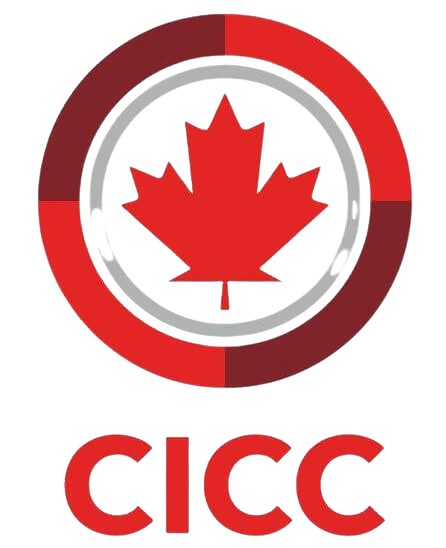 Are you interested in studying in the world’s most educated country in the world? Canada has been ranked as having some of the leading educational institutions in the world, three of which have made the world’s top 100 universities list.
Are you interested in studying in the world’s most educated country in the world? Canada has been ranked as having some of the leading educational institutions in the world, three of which have made the world’s top 100 universities list.
Choosing where to study in Canada is not only an important decision when it comes to improving your resume but also when it comes to your career development. Having a Canadian qualification can help you make your mark in the professional sector, whether it be in Canada, internationally, or in your own home country.
That being said, Canada values talented individuals so much that it has created both federal and provincial graduate programs to help talented students stay and get work experience in Canada and eventually lead to getting permanent residency.
Study Programs In Canada
Whether you want to simply live and study in Canada or work part-time as an international student, Canada is the place for you. With universally acclaimed educational institutions and a strong public schooling system, the country hosts a variety of programs to help with the Canadian learning experience. Canada could be your doorway to a student grant or even an international scholarship.
Take a look at our Top 100 Canadian University List to help you choose your preferred university.
Do I Need a Study Permit?
If you intend to study in Canada for longer than 6 months you will need a study permit. The study permit is usually valid for the length of your study program plus an extra 90 days. If your study program is less than six months long you won’t need a study permit but you may want to apply for one anyway as it will give you the opportunity to earn some extra money and work both on and off-campus. Without a study permit, you will have to apply for a work permit to be able to work as an international student. Important Note: Due to COVID-19 regulations, all international students in Canada are required to apply for a study permit or visa, no matter the length of the study program.
How to Apply for a Canadian Student Visa
Step 1: Find Out if You’re Eligible
To be able to study in Canada there are a number of requirements that need to be met.
Eligibility Requirements
- Be enrolled at a Designated Learning Institution(DLI)
- Have enough money to pay for your tuition fees, living expenses, and return transportation (for yourself and any family members who come with you to Canada)
- Not have a criminal record
- Be in good health
- Prove that you intend to leave Canada when your study permit expires.
Step2: Apply to Your Chosen College or University
Canada has so many great institutions to choose from, however, if you are an international post-grad student, you will need to choose a Designated Learning Institution (DLI). Not to worry though, you will have your choice of over 300 DLIs across Canada. If, however, you plan to stay and work in Canada after you have completed your studies, it’s important to check if your DLI meets the Post-Graduation Work Permit Program (PGWPP) as not all DLIs are not created equally. Important Note: Due to COVID-19 regulations, your DLI will need to be approved as having a COVID-19 readiness plan. This is to ensure that all students’ health and safety are protected and are provided with the necessary information and support regarding quarantine, health insurance, etc. during their stay in Canada.
Step 3: Apply For Your Study Permit
Once you have been accepted to your chosen educational institution, you will receive an acceptance letter, which you will need when you apply for your Canadian study permit. Below is a list of the required document for your application
Required Documents
- Proof of acceptance – letter of acceptance from your DLI
- Proof of identity – passport and two passport-sized photos
- Proof of financial – Minimum of $10,000 plus additional fund for each family member that will be joining you eg. proof of student loan, a Canadian bank account in your name, paid tuition and housing fees, proof of funding (person or school), student or education loan, four months bank statements
You may also be asked for additional information, such as:
Additional Documents
- a letter of explanation – why you want to study in Canada;
- a certificat d’acceptation du Québec (CAQ) – if you want to study in Quebec
- a custodian declaration (minors only)
- Police certificate;
- Medical exams;
- Language testing;
- Biometrics;
- other documents – any local requirements from your country or region
If you need to submit additional information it’s best to start collecting them before you are asked for them as you will only have 30 days to acquire and submit them from the date they are requested by the IRCC.
Once your student visa is approved you will receive a port of entry letter of introduction. You will need to show this to the official once you arrive in Canada who will then give you your study permit, which allows you to study in Canada. You will also automatically receive an eTA or temporary resident visa that will allow you to enter Canada. Be sure that you also have all your required and additional supporting documents with you in case you are requested at your port of entry.
As an additional requirement, you will need to use ArriveCan to show your COVID-19 symptoms self-assessment, quarantine plan, and contact information.
FAQS: What You Want to Know About Studying in Canada

1. Can I study in Canada without IELTS?
The short answer is yes. You don’t necessarily need to take the IELTS test to study in Canada. Most schools in Canada give international students options between a few approved language tests for academic purposes such as the Canadian Academic English Language (CAEL) assessment and the Duolingo English Test.
You could avoid writing an English test if you meet specific exemption requirements. For example, if you completed four or more consecutive years of full-time education in English in a country other than Canada where English is the principal language.
2. How much will it cost to study in Canada?
According to Statistics Canada, you can expect to pay anywhere between an average of $29,714 for undergraduates programs and $17,744 for postgraduate programs per year, while MBA programs average at about $27,397 annually. Read more here.
3. Is Canada’s student visa open?
Yes, Canada is processing student visa applications and you can apply for your Canadian student visa. In order to travel to Canada you must follow COVID-19 measures which include being fully vaccinated among other criteria.
4. What should I study in Canada to get PR?
There are a few immigration programs and streams that allow international graduates within specific disciplines and graduate levels to apply for permanent residence in Canada. Two such programs are the Master’s Graduate Stream of the Ontario Provincial Nominee Program (OINP) and the Student Stream of the Saskatchewan Provincial Nominee Program (SINP). Another way how international graduates become permanent residents is by staying on and working in Canada after their studies. That’s because Canadian work experience counts towards your immigration points. International graduates can work in Canada by applying for a Post-Graduation Work Permit (PGWP). It’s important to study at a PGWP-approved college or university in order to qualify for a PGWP after you graduate.
5. How to study in Canada with scholarships in 2022?
International students who have shown academic excellence may be able to get scholarships to study in Canada in 2022 and beyond. See this list of Canada scholarships, grants, and fellowships for international students.
6. What is the cost of a study visa in Canada?
It costs $150 to apply for a Canadian study visa in 2022.
7. How can I study in Canada and work?
The good news is that international students are eligible to work while studying in Canada. Students can work off-campus for 20 hours per week and full-time during semester breaks. You can also stay on and work in Canada after you graduate with a Post-Graduation Work Permit. See question four.
8. How much time do I need to reapply for a study permit in Canada?
You should apply to extend your study permit at least 30 days before your current permit expires. If your permit has already expired then you have 90 days to apply to restore your status and extend your permit. You will have to pay a $200 fee to restore your status.
How Long Will My Visa Application Take?
On average processing times for study permits can take around 15 weeks, depending on your nationality and where you are applying from, however, there may be a faster option for you if you qualify for the Student Direct Stream (SDS). If you are from one of the following countries you may be eligible for the SDS and could receive your permit to study in Canada in as little as 20 calendar days!
List of Eligible Countries
- China;
- India;
- Morocco;
- Pakistan;
- the Philippines;
- Senegal;
- Vietnam;
- Brazil;
- Colombia;
- Peru;
- Antigua and Barbuda;
- Costa Rica;
- Trinidad and Tobago; and
- Saint Vincent and the Grenadines.
Need Help With Your Application?
 Using a licensed professional to assist you with your application comes with all kinds of perks! You’ll have access to your very own student advisor who will not only help you find the best place to study in Canada based on your personal needs and career aspirations but also help you write a motivational letter to help support your college or university application.
Using a licensed professional to assist you with your application comes with all kinds of perks! You’ll have access to your very own student advisor who will not only help you find the best place to study in Canada based on your personal needs and career aspirations but also help you write a motivational letter to help support your college or university application.
You will also be able to submit all your information and supporting documents on our state-of-the-art Visa Profile Builder. This will allow you to track your application, keep in contact with your designated Regulated Canadian Immigration Consultant (RCIC), and will make the entire process simpler, quicker, and more convenient for you, leaving you with one more thing to do. Explore what student life in Canada has to offer!
Work in Canada as a Student
As an international student, you can study in Canada and work in Canada for a maximum of 20 hours a week. This a great way to gain Canadian experience, extra funds, and the possibility of future employment by a Canadian employer.
Canadian Education System
Said to have one of the best education systems in the world, Canada has a lot to offer for your educational future. You have the chance to receive free government education in both primary and secondary institutions if you are either a Canadian citizen or a permanent resident.
Study Permit Visa Partners
If you are an international student that is not a permanent resident of Canada, you may need a study permit. A study permit will give you the chance to have access to the great Canadian education system, and even work part-time as an international student.
Post-Graduate Work Permit
With Canadian educational institutions recognized around the world, you can greatly benefit from Canada’s education system as an international student. You have the opportunity to further your education through a variety of programs offered by recognized Canadian institutions.











